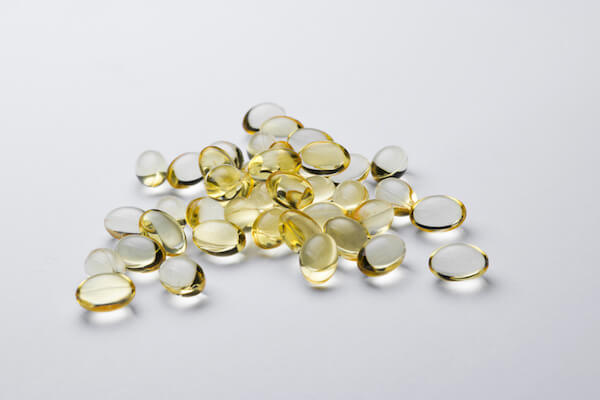Maintaining a well-rounded diet is important for ensuring that you’re giving your body all of the nutrients it needs to stay healthy, and maintaining all major systems including your pelvic health. While some vitamins are easier to consume than others, it’s still necessary to get the recommended daily value of each. Vitamin D is a fat-soluble vitamin that has an endless list of roles in your body. Though having healthy levels of vitamin D is important to your overall health, it’s only present in a few foods. Vitamin D is typically absorbed from the sun and is critical to calcium absorption, so those who don’t experience frequent sun exposure may require an additional supplement.
Not only does vitamin D help to absorb calcium and phosphorus, which is critical to bone health, it also contributes to immune function, cell growth, healthy blood pressure levels, muscle health, brain development, and disease prevention. A vitamin D deficiency can cause issues such as fatigue, aches, bone pain, increased risk for cardiovascular disease, and cognitive impairment.
Maintaining your overall health is critical to healthy organ and system function throughout your body. So, what does vitamin D have to do with your pelvic health? Two recent studies have found a link between a vitamin D deficiency and pelvic health disorders, making the proper consumption of vitamin D a key player in your pelvic health. Pelvic health disorders include conditions such as incontinence or organ prolapse. Here are the results:
Study 1:
Researchers performed a cross-sectional analysis of women over the age of 20 with data on pelvic floor disorders and levels of vitamin D. They considered vitamin D levels lower than 30 ng/mL to be a deficiency. Twenty-three percent of women reported suffering from one or more pelvic floor disorders. The results showed that average levels of vitamin D for women with at least one pelvic floor disorder were significantly lower. When further research was conducted, they found that there were significantly decreased risks of one or more pelvic floor disorders as the levels of vitamin D increased. In the women 50 and older, the likelihood of urinary incontinence issues were significantly reduced in women with sufficient vitamin D levels.
Study 2:
In this particular study, researchers explored the association of vitamin D deficiency and pelvic floor disorders, such as pelvic organ prolapse and stress urinary incontinence, in postmenopausal women. Of the 120 postmenopausal women included in the study, 51 suffered from a pelvic floor disorder. Of the 51 with a disorder, 14 suffered from stress urinary incontinence, 28 had pelvic organ prolapse, and nine women had a combination of both. Of all 120 women, those with some type of pelvic floor disorder had significantly lower levels of vitamin D as compared to the women without any pelvic floor issues.
Each of these studies support a significant association between vitamin D deficiencies and pelvic floor disorders, suggesting that a healthy level of vitamin D could help to improve the risk or decrease the prevalence of certain disorders, especially among postmenopausal women.
To get more vitamin D in your diet and to ward off pelvic health issues and other deficiency symptoms, such as frequent colds or depression, here are some ways to get your daily vitamin D:
- Sunlight
- Egg yolks
- Fortified cereal
- Fatty fish
- Fortified milk
- Beef liver
- Cod liver oil
- UV lights and bulbs
- Canned tuna fish
- Certain mushrooms
- Fortified orange juice
- Supplements
Whether spending more time in the sun or adding more fish to your diet is how you decide to boost your vitamin D intake, it’s important to make sure you’re getting a healthy amount. Though consuming enough vitamin D is an obvious requirement for your health, it is possible to have too much. Since vitamin D is a fat-soluble vitamin, your body has a hard time getting rid of it if you take too much. An overdose of vitamin D, also known as high blood calcium or hypercalcemia, can cause symptoms such as abdominal pain, muscle weakness, loss of appetite, frequent urination, or extreme thirst. The Vitamin D Council suggests that the ideal blood level of vitamin D is 50 ng/mL, which is an intake of about 900 IU per day for a person weighing 150 pounds.
As world-renowned gynecologists, the doctors at Miklos and Moore believe in bringing our patients well rounded medical care and providing world-class advanced treatments and procedures for a variety of pelvic health issues. Contact us today to learn more or to schedule your appointment!

